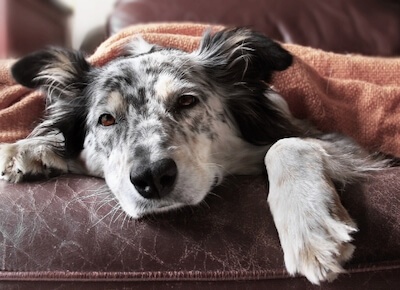Caring for your Senior Pet
November is Adopt a Senior Pet Month. I love senior dogs and I have one myself – Cleo, a 14-year-old Miniature Poodle.
As dogs age, their needs change. Paying special attention to the effects of aging on your pet can make them more comfortable in their senior years, here are some things to be aware of:
1. They can’t see or hear as well anymore.
You may think they are ignoring you, or not listening to you. Maybe you throw a ball and they just stand there, or you call them, and they don’t come or look at you. One thing that also may happen is seeing an aggressive response, as they may get startled if someone approaches or touches them if they don’t hear or see them coming. This aggression is a reaction out of defensive surprise or the touch may have caused pain in arthritic or sensitive areas.
If your Senior dog is experiencing hearing loss one way to help is start training with hand signals in addition to your verbal commands. As a dog trainer, I always encourage, even with younger pups, to use a verbal cue combined with a hand signal. You can also use handclaps, knocking on hard surfaces, or some other noise-making strategy as many dogs with hearing loss can feel vibrations.
Vision loss can make your dog clumsy, and it may be difficult for them to find their food or water dishes. To help, avoid moving these items around. Your senior can also get more easily startled. If your vet confirms weakening vision, here are some things to help them out. Remove clutter from the floor, mark different rooms with scents or differently textured rugs so your dog starts to recognize rooms by smell or touch, in addition to sight. Block off any dangerous areas such as pools and stairs and keep all their familiar things in the same place i.e. toys, bedding, food, and water bowls.
2. They can get more anxious.
Senior dogs have a harder time handling stress. Some things may create stress that didn’t before such as; separation anxiety when you leave them, visitors entering the home, interacting with new dogs, and new noises. They may seem more irritated or agitated than usual. Some become clingy, and others may just want to be left alone.
Help reduce your dog’s anxiety by taking them for shorter walks, play games, or food puzzles to increase mental stimulation, allow extra space away from strangers or stimulation in public. Keep a regular routine so they know what to expect. Be patient with them and don’t forget to keep your own mood in check as they can pick up on your energy.

3. They may experience a loss of appetite.
As dogs age, their metabolism slows down and they need less food. They may act hungry and as treat-crazed as ever, but their body isn’t able to burn the calories the same way. Weight gain can be hard on their joints so avoid feeding them more and talk to your vet about a change in diet, such as one designed especially for senior dogs.
4. They get confused and forget the rules.
A loss of cognitive ability comes with aging. You’ll find your dog may forget simple things like how to navigate around the house or recognize certain people. They may forget tricks they’ve been taught. Accidents in the house may become more common. If they start to act strange get them checked out by your vet. There are medications and supplements that can help, but also being more patient with them when they get confused or lost, as they are aging.
5. They need extra care with grooming.
Senior dogs often experience changes in their skin, coat, and even their nails. Their skin can become dry and their coats more coarse. A supplement of coconut or salmon oil with meals can help. A senior dog’s skin may become thinner so be aware of that while grooming as injury may be more likely. Their nails also become brittle, so they may need more frequent trimming.
6. They get cold more easily.
Older dogs love warm cozy beds. The reason for this is as they age, it’s not as easy to regulate their body temperature. They may need coats or sweaters to help with cooler temperatures which will also help minimize joint and muscle stiffness. Keep their dog beds close to a heat source, or provide a heating pad for them. Be sure to carefully monitor them if using an external heat source, as you also don’t want them getting too warm.

7. They can’t move as well as their joints hurt.
Arthritis and joint pain are common problems for aging dogs. An old injury may flare up or arthritis kicks in or may worsen. Joint pain can cause a number of problems such as; getting into cars, going up and down stairs, and being able to move around in the cold weather. Starting your dog on supplements early that assist with joint health can help. You can also provide ramps where your dog needs to climb stairs, shorter- but more frequent -walks, provide opportunities to swim or other low-impact exercise, switch to an orthopedic bed, and elevate food and water dishes to reduce impact.
Having a dog is the best thing in the world (of course!), but there are always concerns and cares that come with owning a dog. Although we may feel sad as we watch them age, we owe it to them to do everything we can as they near the end of their time with us to do what we can to keep them safe and comfortable in a loving enviroment.

